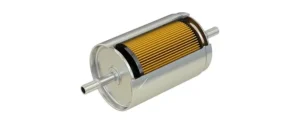When it comes to maintaining your vehicle’s performance and longevity, the fuel filter often doesn’t get the attention it deserves. Despite its modest size and cost, this critical component plays a significant role in ensuring your engine runs smoothly and efficiently. Neglecting to replace your fuel filter at recommended intervals can lead to decreased engine performance, costly repairs, and even total engine failure. Here’s why regular fuel filter replacement is essential.
What Does a Fuel Filter Do?
The fuel filter is designed to remove dirt, debris, and impurities from the fuel before it reaches the engine. Modern fuel systems are highly sensitive and require clean fuel to function properly. Contaminants in fuel can clog fuel injectors, damage pumps, and hinder the combustion process, leading to a range of performance issues.
Signs of a Clogged Fuel Filter
A failing or clogged fuel filter can manifest through several warning signs, including:
- Difficulty Starting the Engine: A clogged filter restricts fuel flow, making it harder for the engine to start.
- Reduced Power and Acceleration: Insufficient fuel supply impacts engine performance, especially during acceleration.
- Frequent Engine Stalling: A restricted fuel flow can cause the engine to stall unexpectedly.
- Decreased Fuel Efficiency: When the fuel delivery system is compromised, the engine works harder, consuming more fuel.
- Check Engine Light: A clogged fuel filter may trigger a diagnostic trouble code, illuminating the check engine light.
Why Regular Replacement is Crucial
- Protects Engine Components: Clean fuel prevents damage to critical parts such as fuel injectors and the fuel pump. A clogged filter can strain these components, leading to premature wear and costly repairs.
- Ensures Optimal Performance: Regular replacement ensures the engine receives the correct amount of clean fuel for smooth operation and peak efficiency.
- Prevents Contaminant Buildup: Over time, contaminants accumulate in the filter. Replacing it prevents these impurities from reaching the engine, maintaining its health and longevity.
- Improves Fuel Economy: A clean fuel filter helps the engine operate efficiently, reducing unnecessary fuel consumption.
How Often Should You Replace Your Fuel Filter?
The recommended replacement interval for a fuel filter varies depending on the vehicle make and model, as well as driving conditions. Generally, most manufacturers suggest replacing the fuel filter every 20,000 to 30,000 miles. However, if you frequently drive in dusty or harsh environments, you may need to replace it more often. Always refer to your vehicle’s owner’s manual for specific guidelines.
DIY vs. Professional Fuel Filter Replacement
While some vehicle owners choose to replace the fuel filter themselves, it’s important to note that modern vehicles often have intricate fuel systems. In some cases, the filter may be located within the fuel tank, requiring specialized tools and expertise. If you’re unsure or lack the proper tools, it’s best to have a professional mechanic handle the replacement.
Regular fuel filter replacement is a small investment that pays off in big ways. By ensuring a steady supply of clean fuel to your engine, you’ll enhance performance, protect key components, and extend the life of your vehicle. Don’t wait for symptoms of a clogged filter to appear—stay ahead of potential issues by following your maintenance schedule. Your engine—and your wallet—will thank you.

